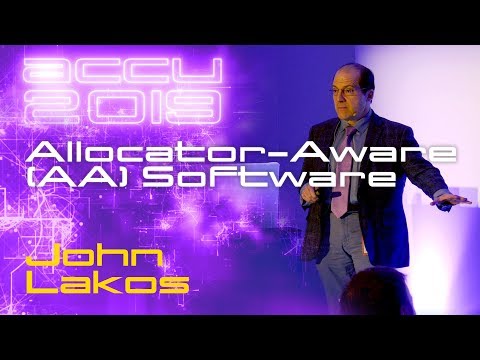By John Lakos
The performance benefits of supplying local allocators are well-known and substantial [Lakos, ACCU-17]. Still, the real-world costs associated with orchestrating the integration of allocators throughout a code base, including training, supporting tools, enlarged interfaces (and contracts), and a heightened potential for inadvertent misuse cannot be ignored. Despite substantial upfront costs, when one considers collateral benefits for clients - such as rapid prototyping of alternative allocation strategies - the case for investing in a fully allocator-aware (AA) software infrastructure (SI) becomes even more compelling. Yet there remain many 'concerns' based on hearsay or specious conjecture that is either overstated or incorrect.
In this densely fact-infused talk, we begin by introducing a familiar analogy to drive home the business case for AASI. Next we identify four syntactic styles based on three distinct models: C++11, C++17, and a brand new language-based approach being developed by Bloomberg for C++23 (or later). Costs - both real and imagined - will be contrasted with performance as well as other important ('collateral') benefits. The talk will conclude with a closer look at the economic imperative of pursuing a low-cost language-based alternative to AA software in post-modern C++.












